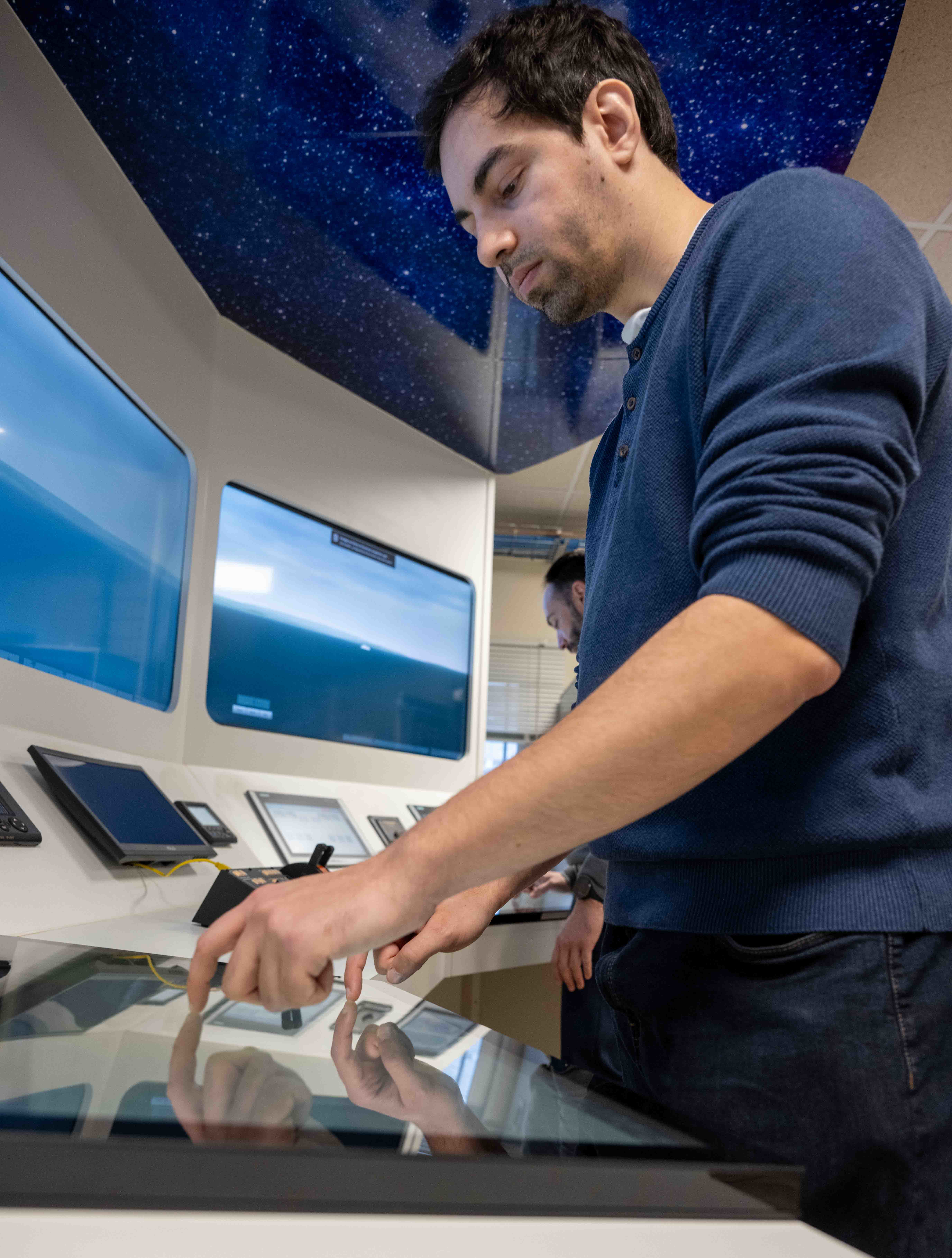Portrait of a graduate PhD #8: Douraid Naouar
10 Jul 2025
interview,
PhD,
cyber
naval
chair
Douraid defended his thesis entitled ___“MoRiA: A model-based method for cybersecurity risk analysis. Application to a complex naval defence system” in August 2022. He gives us an insight into his career within the Chair and beyond.

___What was your pre-doctoral career path? ___
I did a BTS IRIS (Information Technology and Networks for Industry and Technical Services), then attended ISEN Méditerranée (Yncréa) engineering school, specialising in software engineering, on a sandwich course with Naval Group.
Why did you choose to specialise in cyber security?
Throughout my career, I had explored the IT and software field and its engineering. Then, during my work-study placement, I also started to take an interest in systems engineering, which is, in a way, a more global approach, encompassing software.
However, neither of them really covered the cybersecurity aspects at the time (between 2015 and 2018).
So, out of curiosity, I seized the opportunity to discover this new skill. What I find particularly fascinating about cybersecurity is the fact that it’s so much fun and that it’s a two-way street: you adopt the perspective of both the attacker and the defender.
It offers a wide variety of points of view on the same subject, and there’s always something new to learn, which is really stimulating.
What were the highlights of your thesis?
One of the highlights of my thesis was writing the scientific articles. This demanded a great deal of rigour and a real critical mind, as I had to manage to popularise several years of work in a few pages and a few lines. But all this effort was amply rewarded when the publications were accepted by peers.
Another highlight was visiting ships and submarines, which left me with some very fond memories. The exchanges with the crews gave me excellent feedback and enabled me to take a step back from my research.
What has been your greatest difficulty over the three years?
My biggest difficulty over these three years was writing the final thesis manuscript. Even though you write indirectly throughout your PhD, it’s really when you put everything down in detail that you realise, with three years' hindsight, that some of the choices you made at the start weren’t necessarily the best ones, and were sometimes even a bit clumsy. But you have to keep on writing and defending your work, despite the fact that each time you re-read it you see your mistakes or your own limitations in certain respects. It’s pretty frustrating…
How did the Chair contribute to the success of your doctorate?
The Chair has contributed a great deal to the success of my doctorate, first and foremost thanks to the wonderful environment and team. I had a great time there, surrounded by people who were passionate about what they were doing and studying.
What’s more, the Chair’s links with industry have enabled me to meet technical teams in the field. This has been a real asset, whether it’s to benefit from support during the thesis or to compare and validate my ideas.
These exchanges give the Chair’s work a real industrial scope, and for us doctoral students it’s very motivating to see that our research makes sense, finds concrete applications and doesn’t just remain a line in the scientific literature.
What is your current job?
I’m a teacher-researcher at the Brest Naval Academy.
Was it easy to find a job afterwards?
Following my thesis, I received several offers, and it would have been quite easy to find a job, especially on very interesting projects directly related to my field of expertise. However, I decided to take some time out to discover the world and open myself up to new horizons. After all, you have to keep the flame of curiosity alive or you risk becoming too wise. ;)
What do you take away from this experience in the maritime world?
It’s a very interesting world, full of traditions and demands, whose stories are often more interesting than the actions that result from them. The landscapes and systems I saw are memories I’ll never forget. I’m really lucky to have been able to live there, without having to be subordinate to it.
Do you have any advice for students interested in doing a PhD at the Chair?
I would advise students tempted by a doctorate at the Chair to come with a light heart and a head full of ideas, because it’s a great experience. The thesis period is a long period of introspection, when you often come face to face with yourself. It gives you a better understanding of what really motivates you, what pushes you forward, but also what can hold you back or not suit you.
Personally, I learnt almost as much about myself as I did about cybersecurity during this period…
This experience is all the more enriching because it’s shared with the other PhD students around us. Their exchanges are invaluable, because they help us to see where we stand and to refine and reformulate our own ideas.
More information about Douraid’s work

